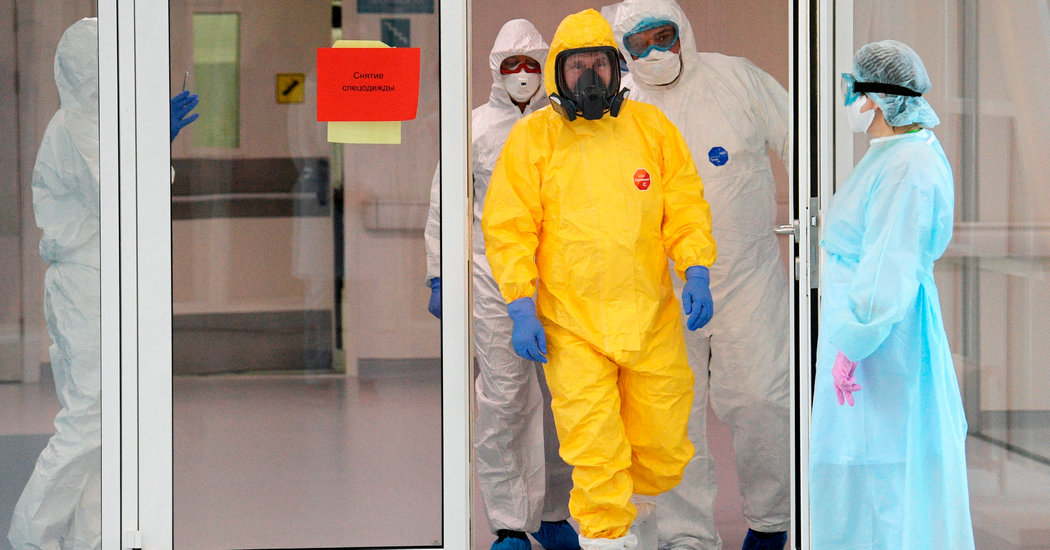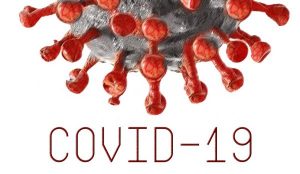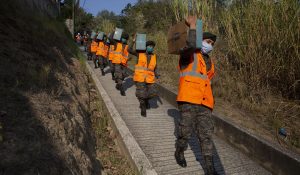VILNIUS, Lithuania — “I was stuck at home for too long, had to go for a ride,” a friend from Moscow shouted into his phone several weeks ago, trying to outyell the noise around him on a trip, it turned out, to St. Petersburg. “We’re going to hit a bar here and get some drinks, will call.” He then disappeared from the video chat, in which I could see people behind him, walking along a familiar St. Petersburg street.
I get very different dispatches from friends who live in a small town in Italy. There they stay home and tell me about relentless police raids against wanderers in the streets. A friend in Berlin says it is OK to go out, but not to gather in groups of more than two.
The coronavirus pandemic caught me in Vilnius, Lithuania, a city where the streets are deserted, the bars are dead, and all flights have stopped. Never in my wildest dreams did I imagine seeing in a European democracy a police-enforced order that limits personal freedoms contrasted by scenes of boisterous social merriment in Moscow, my normally order-obsessed and state-controlled hometown.
As I write this, Russia is catching up. Still, the inversion between East and West of attitudes toward individual freedoms during the Covid-19 disaster is startling. There is certainly no shortage of police in Moscow. But the Kremlin has been late in introducing consistent quarantine measures, because it is undecided. It evokes the confusion now engulfing the United States, where President Trump’s late and muddled start has contributed to disaster. President Vladimir Putin did no planning for a coronavirus coming in from abroad. Now it has interfered with his politics — which in his view should always take precedence over everything else. As a result, his country will face a far more destructive outcome than might have been avoided had he started earlier.
On March 28, Russians were shown pictures of Mr. Putin wearing a bright yellow hazmat suit and a breathing mask. He visited a hospital housing Covid-19 patients and inspected a construction site for an emergency hospital near Moscow. Mr. Putin was transitioning from an it’s-a-foreign-threat stage to accepting the reality of an infectious threat to the population.
But like President Trump, Mr. Putin seems uncomfortable with recognizing the virus’s biological, nonpolitical nature — a “Chinese” virus, they call it, as if that explains its ferocity. The default mode of laying blame, in which both leaders’ politics and popularity are paramount, is apparently hard to reconcile with a reality that can’t be manipulated.
In times of natural calamities, hard truths suddenly take command. And if you live in a world where everything and everyone is either for you or against you, the whole virus thing sounds politically suspicious. That is why, for the past several weeks, some of Russia’s state-run media and security agencies have been preoccupied with silencing those who spread “panic among the population.” And Russia’s tabloid-style press has been filled with conspiracy theories that the virus is a biological weapon or a hoax. Much of that has been translated abroad through Russia’s influence media, an internal European Union report said recently.
The Kremlin has seemed confused. On March 25, in a surprise address to the nation, President Putin postponed indefinitely an April 22 vote about constitutional amendments that include allowing him to run for president again in 2024. (He had already signed the changes into law, making the vote meaningless.) He then declared last week a nationwide paid holiday, but his spokesman, Dmitry Peskov, later said it was not meant to be a holiday for people working remotely. On Thursday, Mr. Putin extended the holiday until the end of April, effectively placing the burden of supporting a failing economy squarely on the shoulders of businesses and other employers.
The paid-holiday move puzzles many. With time, it became clear that announcing a holiday was a typical Putin ruse, deployed to prevent him from being associated with “negative” decisions. He refuses to use words like “emergency,” “restrictions” or “quarantines.”
In response, Moscow’s mayor, Sergey Sobyanin, has taken the lead in quarantine policymaking. He has issued additional “regional” restrictions on businesses and movements around town. He has imposed a self-isolation regime and is seeking an app that would allow the mayor’s office to police the compliance. Now, with no coherent nationwide policy announced, other regional and municipal authorities have been making their own decisions, which is unusual, considering Russia’s normally hypercentralized decision-making process.
After Mr. Putin’s address to the nation, the number of Covid-19 cases started to grow. On Sunday, Russia confirmed more than 670 new coronavirus infections in a day, bringing the official total to almost 5,400.
But most people in Russia are unsure what to believe: 24 percent of those polled by the nongovernmental Levada Center say they distrust official information on the pandemic; 35 percent say they trust it only “in part.”
That leaves many Russians thinking the authorities have been whitewashing the threat by preventing doctors from diagnosing Covid-19. Indeed, in January, Russia registered a spike in pneumonia of 37 percent more cases than a year ago, according to Russia’s statistical agency. Many think that most of the pneumonias could in fact have been Covid-19 cases. In a country of 144 million people, with a long border with China and, until recently, busy connections with Italy, the official tally seems incredibly low.
The true scale of the virus spread in Russia is unknowable for all those reasons, and more. Russia’s tests for the coronavirus are much less sensitive than those used in other countries. As of March 21, Russia had carried out 133,100 tests with 306 returning positive. At 0.21 percent, the ratio of tests to positive cases is startlingly low, when compared with most other countries’ results.
Amid the current confusion, a grim alternative explanation for Russia’s lax response has been circulating: that it is a deliberate policy of letting the virus spread to as many people as possible, in expectation that they will become immune to the new pathogen, assuming they live. That’s a rumor, of course, too gruesome to discuss publicly because of the obvious human cost such a policy would risk.
So what can Russia do? China and Germany provide opposing alternatives. China’s leaders, after hesitation, unleashed the full power of an authoritarian state against the outbreak. It worked, but the aggressive quarantine efforts and extensive use of human-tracking technologies will attract criticism for a long time.
Germany chose political openness. Early on, Chancellor Angela Merkel laid out facts and statistics charting Germany’s likeliest prospects. “The consensus among experts,” she said, “is that 60 to 70 percent of the population will be infected as long as this remains the situation.” So far, Germany’s response has been relatively successful, with a Covid-19 fatality rate far lower than in many other countries.
The Kremlin’s reaction has been much less aggressive than in China and much less open than in most European countries. It may be falling behind the disease’s progress because of Mr. Putin’s political goals. Or it may be purposefully letting the virus run its course. In both cases, we are dealing with a political experiment with human subjects, with the consequences unknown.
Maxim Trudolyubov is an editor at large for the business magazine Vedomosti in Moscow and editor of The Russia File, a blog published by the Kennan Institute in Washington.
The Times is committed to publishing a diversity of letters to the editor. We’d like to hear what you think about this or any of our articles. Here are some tips. And here’s our email: [email protected].
Follow The New York Times Opinion section on Facebook, Twitter (@NYTopinion) and Instagram.



















